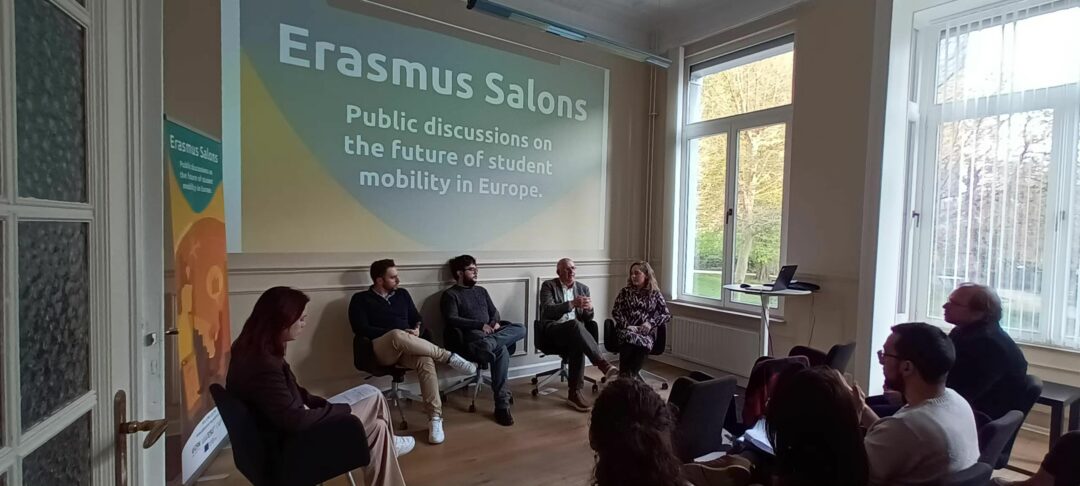Monday the 17th of April marked the return of the flagship events series, the Erasmus Salons. The series has been relaunched in cooperation with the Erasmus Student Network (ESN) and the European Students’ Union (ESU), with the first Salon being led by ESN on the question of student housing.
The event started with Matteo Vespa, President of ESU, introducing the topic in the context of a broader European crisis that is now worsening. This is particularly relevant for international students who lack the safety net that national students tend to have. Furthermore, Matteo introduced a survey carried out by ESU and ESN on student housing last November.
ESN President Juan Rayon also presented the results and main conclusion from the survey on student housing which garnered over 8000 responses in just one month. One of the main issues related to scams, as international students find themselves with the dilemma of whether to book accommodation before going to their mobility destination and risk getting scammed or go there without any accommodation with the hope of finding one after arrival. Out of the students that responded to this survey 25% reported being victims of scams, many of which were linked to pre-departure booking of housing.
Following this, a panel discussion between the audience and speakers took place, guided also by Aniko Makkai-Kovacs, Senior Policy and Research Officer from the EUF, and Frederick De Decker, Head of the International Relations Office from Ghent University. During the panel the latter reminisced about his time as President of ESN Ghent and how some issues that plagued students thirty years ago remain very much relevant today, particularly the case that many students would pay their rent in their university city with the Erasmus + grant because they were too scared to lose their accommodation while they were away on mobility as they did not want to lose their stability.
The discussion continued with the topic of interactions between local and international students, due to the fact that sometimes local students are not always very welcoming towards international peers. It was argued that student organisations should play a key role in bridging this gap between them. This is important because to break biases and meet people is, after all, one of the timeless principles of the Erasmus + programme.
Some of the conclusions reached at the end included having a buddy system to support international students in finding proper accommodation or a peer linking system so that incoming and outgoing students could exchange their respective accommodations. Additionally, building new dormitories might be a solution in some cases, but it does not solve the current problems nor is it the most sustainable solution in the long term. What is principally needed is to find already existing and empty rooms, for example through the WeShareWeCare project that links elderly people with empty rooms in their apartment and students looking for accommodation.

